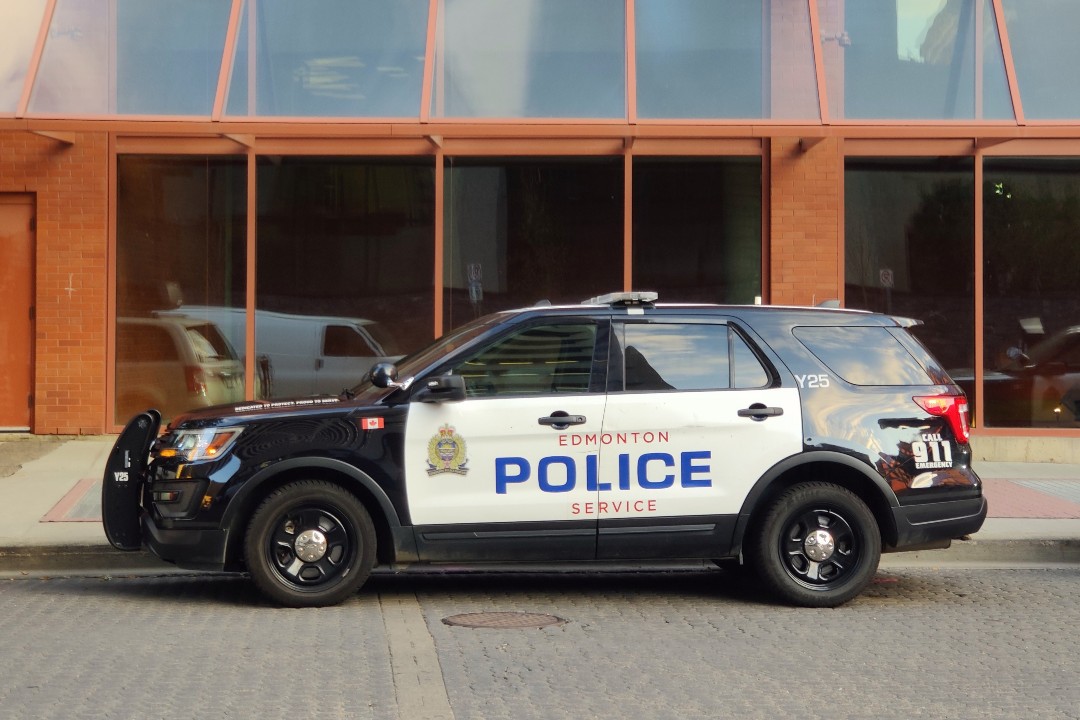This week, council will meet to discuss the police funding formula, city-led rezoning, and Dutch elm disease.
There is a public hearing scheduled for May 20, where council will discuss the priority growth area rezoning project. There is a city council meeting scheduled for May 21 and 23.
Here are key items on this week's agenda:
- Edmonton experienced its lowest crime rate in nearly a decade last year, according to the Edmonton Police Service's 2024 annual report, which is scheduled to be presented to council on May 21. There were 7,816 crimes per 100,000 people in 2024, down from the peak of 10,523 in 2019. Many of the police's performance measures are trending in the desired direction: The rate of non-violent crime, number of traffic fatalities, and occurrences of social disorder all fell between 2023 and 2024. Meanwhile, the Human-centred Engagement and Liaison Partnership (HELP) Unit had more interactions with community members, officers issued more traffic tickets, and officers made more referrals to support services, according to the annual report. Council will also discuss what services and projects the police's funding formula has enabled since 2023. The formula starts with a base budget and gives the police automatic annual increases based on population growth, inflation, and operating funds needed for capital projects. A report from the Edmonton Police Commission said 29% of the increased funding has gone to new initiatives stemming from population growth. That includes $5.4 million to the Healthy Streets Operation Centre, $600,000 to expand the HELP Unit, and $1 million to modernize the information management branch. The report said 52% of the extra funding has gone to addressing inflationary pressures. That includes $7.4 million in employee benefits, $3.4 million in compensation benefits, and about $3 million to replace or operate vehicles. The remaining 19% has provided operating funding related to capital projects, including an IT systems project and a dispatch modernization project. The police funding formula was first introduced in 2018 and was paused in June 2020 after a police officer murdered George Floyd, who was Black, in Minneapolis, Minnesota, and police funding came under intense public scrutiny. City council reduced the police budget by $11 million split over 2021 and 2022, then later reduced it by another $10.9 million for 2022. Council reinstated the funding formula in 2023. Between 2023 to 2025, the funding formula allocated the police about $31 million above its base budget. The police budget is about $560.1 million, with 83.4% coming from the property tax levy and 8.1% coming from provincial grants.
- Administration's plan to manage Dutch elm disease involves rapid identification, targeted treatments, proactive pruning, and communication, according to a report scheduled to be presented to council on May 21. City officials detected the fungal disease, which is fatal for elm trees, in August and has since removed 17 trees, including the five trees that tested positive. The city is set to remove 38 trees that are in poor condition. Crews aim to remove infected trees within five business days for city-owned trees and within 14 business days for privately owned trees, according to the report. Workers may also remove healthy city trees if they are within 20 metres of an infected tree, as their roots may be connected. Administration is working on a long-term management plan for the disease.
- Council is scheduled to review the Downtown Action Plan and amendments to the naming policy, both of which were discussed at committee meetings last week. The committees did not make recommendations on a course of action. Council is also scheduled to review an amended Accessibility for People with Disabilities policy, which was also reviewed by committee last week. Committee recommended council approve the policy.
- Council is scheduled to vote on amendments to the councillor budget and expense policy on May 21. These clarify that councillors must disclose transportation, food and incidentals, accommodation, registration, and miscellaneous costs. The changes also add a line that travel expense costs are "expected to be reasonable, prudent, cost-effective, and defensible to an impartial observer." Council services committee endorsed the changes at a meeting on May 6.
- Council is set to review the waste services 2025 supplement budget adjustment, which adds two new profiles for changes to facilities. In October, council approved upgrades to the water distribution system at the Edmonton Waste Management Centre and in March added an expansion at the Coronation Eco Station. The projects will be funded from existing budget sources, so there is no rate increase expected. Council's utility committee accepted the changes at a meeting on May 5, but they still require council approval.
- Council is scheduled to receive private updates on a legal matter, the region, collective bargaining, and a funding opportunity for the Blatchford renewable utility.
Meetings stream live on YouTube on the Chamber channel and River Valley Room channel.
Also: What issues do you care about as you consider who to vote for in the 2025 municipal election, and why? The 2025 municipal elections are approaching. Let us know what matters, and read more about what we plan to do with what we gather.

